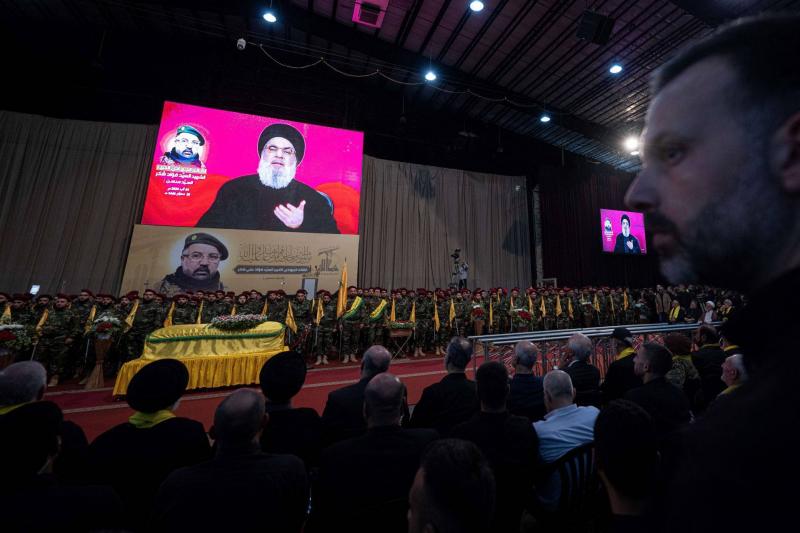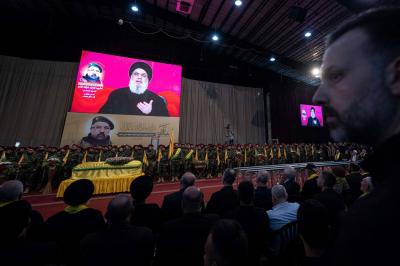In his speech on Tuesday, Hezbollah's Secretary-General, Hassan Nasrallah, commented on the killing of Hamas leaders Ismail Haniyeh and Hezbollah's Fuad Shukr, directing threats toward Israel. Nasrallah affirmed that the deaths of Haniyeh and Shukr would not go unanswered and that resistance would remain steadfast against "Israeli aggression." He also called for unity and increased cooperation among resistance factions.
**Repeated Threats**
Nasrallah's threats to Israel have recurred in many of his previous speeches, often employing a sharp tone and strong terminology. This latest speech does not significantly differ from earlier ones in this regard; some may view these threats primarily as a means to boost the morale of Hezbollah and its allies in the region, particularly amid the difficult circumstances facing the resistance recently.
Despite the public threats, Hezbollah has been cautious in executing large-scale operations against Israel in recent times, due to the balance of power and precise strategic calculations considering the significant repercussions of any comprehensive escalation. Therefore, the recent threats may be more a part of psychological warfare than an indication of a genuine intent to conduct major operations.
**Strengthening Alliances**
Nasrallah emphasized the need for unity and collaboration among resistance factions, which Hezbollah has sought to achieve for some time. This call is not new but comes amid the party's attempts to solidify its position as a key player in the resistance axis, particularly following the decline in international and regional support for Palestinian factions.
The speech also carries multiple levels of messaging; it aims to reassure Hezbollah's grassroots that the party remains strong and cohesive, capable of responding to any aggressions, while also sending a message to Israel that the party is still in a state of constant readiness, even if actions on the ground are limited.
**Assessing the Seriousness of the Threats**
The military capability of Hezbollah cannot be denied; however, implementing Nasrallah's threats comprehensively may require prolonged preparations and coordination with regional allies, such as Iran and Syria, which does not seem likely currently due to the complex conditions in the region. The current regional situation adds new complications to any escalation plans by Hezbollah, and the threats may be part of the party's strategy to keep its adversaries in a state of constant alert without escalating into a direct confrontation with unpredictable outcomes, which he acknowledged during his recent speech.
The internal situation in Lebanon also plays a significant role in determining Hezbollah's behavior, as the economic and political crisis gripping the country makes it difficult for the party to open a new front with Israel that could exacerbate the suffering of the Lebanese people.
**A Repetitive Speech with Unreasonable Threats**
Nasrallah's recent speech contains threats that may seem repetitive considering the political and military reality in the region; earlier speeches conveyed similar meanings and implications, yet nothing has been executed on the ground. The party utilizes this type of discourse to reinforce its position among its supporters and send messages to its adversaries; however, the actual implementation of these threats remains dependent on complex calculations and delicate balances.




